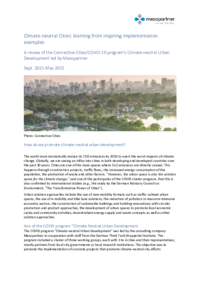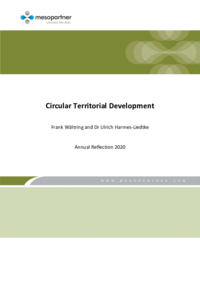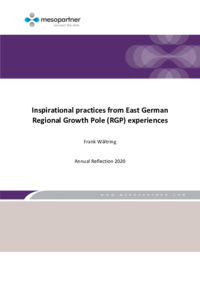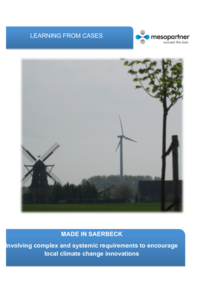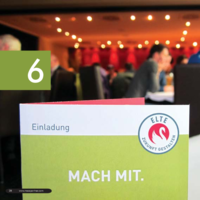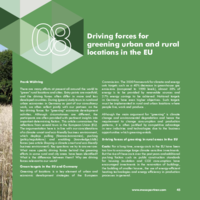Smartes Land
The research theme and platform “Smartes Land” is a learning and exploration field around strengthening the resilience, life quality and diversity of rurally dominated areas, locations and regions.
Villages and small towns as well as citizens, companies, local organisations and politicians are faced with the common challenge of losing educated people and other development dynamics in the countryside. Increasing the resilience and attractiveness of more rural areas requires making these places more attractive. It also requires the promotion of creative ecological, economic and social initiatives.
The English-German term "Smartes Land" literally stands for "smart rural areas". We keep the term “Land” in German to as part of the research is happening in German speaking countries. In contrast to the term “countryside”, “Land” expresses a more emotionally bonded relationship to a rural place. The term “smart” we do not mainly understand as “digital” but as related to clever solutions and practices. These are created organically from the bottom-up, with the people who are living there – but also by being connected to a dynamic top-down influence and feeding information upwards. Through the combination of their knowledge and experiences, through their open exchange and learning interest with and from others, the people in the context are able to make a difference. By connecting them to wider dynamics, they can make their experiences and knowledge relevant for higher-level discussions and learn from what is going on elsewhere.
As a consulting firm in the field of international economic development, we deal with development approaches in complex contexts. “Smartes Land” enables us to bring different perspectives from our own fields of work into the discussion on making rural areas more attractive. At the same time, we are in a learning exchange with colleagues outside our company, which we want to further strengthen.
Some of the questions we are reflecting on are the following: How to promote locational advantages that are not only looking at economic issues but that combine ecological, social and economic development dimensions in a location? How to develop those locational advantages that at the same time increase life quality as well more sustainable lifestyles? What are exciting experiences to learn from?
In addition to publishing various blogs, interviews and podcasts on the topic, we also develop and publish conceptual approaches, methods and instruments for the analysis of smart solutions in rural areas in collaboration with our clients and partners.
In this theme we publish in both German and English to reach a larger group of experts.

Contact us
If you would like to engage us on this research area, email Frank Wältring.
Visit our Smartes Land blog
SOME BLOG HIGHLIGHTS
Our definition of smart rural space
Smart City and "Smartes Land" Solutions in Germany
"Smartes Land”: Promotion of interdisciplinary innovation approaches in rural areas in the European Union and beyond
Watch a video in German or English where Frank Wältring talks to Jana Rasch, a Research Associate at the Wuppertal Institute on the topic "Economic Development 4.0" for sustainable local development approaches in cities and municipalities.


